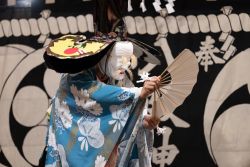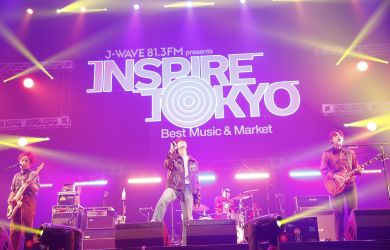
October 8, 2009
Recruiters Cup
The annual soccer tournament welcomes a team of local homeless players
By Metropolis
Originally published on metropolis.co.jp on October 2009

©Natsuki Yasuda/studio AFTERMODE
Sport has long been a path to salvation for the young and the talented, a vehicle for gifted kids to achieve riches and renown. But a rise to superstardom is by no means the only positive influence sport can have—as participants in last month’s Homeless World Cup (HWC) in Milan can testify. Held annually since 2003, the tournament seeks to make a difference to the lives of the estimated 1 billion homeless people worldwide. It involves 25,000 participants, and has triggered and supported grassroots football projects in more than 60 countries.
Team Japan took part in this year’s tournament and, reflecting worldwide homeless demographics, its members were significantly older than most of their opponents. Moreover, in soccer terms, the Japanese were novices, most having never played before joining the team—a sharp contrast to their opponents, many of whom had years of playing experience.
The competition is sure to be different at the upcoming Recruiters Cup, to be held at Osaki Think Park on October 15. Team Japan, who are all vendors of homeless magazine The Big Issue, will play in the tourney alongside employees of seven local recruitment agencies, which provided sponsorship for the squad at the HWC.

Tony Moore, managing director of Boyd & Moore Executive Search, a global recruitment company with offices in Tokyo, Silicon Valley and Pune, India, is behind the organization of this year’s event.
“We have really enjoyed the competition over the last couple of seasons, and when we were given the opportunity to organize this year’s contest, we wanted to build on its success,” he says. “This year the main focuses are on charity and fun. We are delighted that the homeless football team of Japan could join the competition, and we expect them to put up a good game after their recent experiences in Milan. They are a great bunch of lads and we hope we can raise a lot of money to assist them and other homeless causes in Japan.”
For their part, participants are universally positive about the impact that such tournaments have on their lives. Henry, a member of Portugal’s 2009 squad at the HWC, is typical. “I will remember the miracle of the human spirit,” he said in an interview on the organization’s website. “How teams have overcome obstacles to be here. How the players overcame any personal difficulties with accommodation and have moved forward. The service that the volunteers provided. This is the miracle of the human spirit.”
More tangibly, surveys of former participants revealed an impressive catalogue of positive developments. Ninety-two percent reported a new motivation for life, no doubt instrumental for the 35 percent able to secure regular employment and the 44 percent who improved their housing situation. Overall, 73 percent claimed to have changed their lives for the better through football.
Team Japan also seemed to be energized by the competition at the HWC. Although they didn’t win a match, they grew in confidence as the tournament progressed—the final game was a narrow 5-4 loss to a strong Australian team. More importantly, their positivity won them many friends, and their determination against youthful opposition earned the Fighting Spirit Award.
Despite language barriers, the team managed to communicate with fellow competitors, developing a strong rapport with the Cambodian squad in particular. “We [began] full of anxiety, fear and suffering,” Team Japan member Takuji Yoshitomo tells Metropolis, “but such things became meaningless. I thought it was a tiny problem.”

Mitsuku Masaaki, a former construction worker, echoed those feelings. After a period of living alone, he was excited by the chance to interact with others: “In a team, I don’t just care about myself, I have to care for my team members.”
Susumu Honda perhaps summed up the Japanese experience best. Dislocating a bone in his hand in the first match, he defied doctors’ orders and played in the final game, scoring a goal he’ll remember forever. “This tournament is really wonderful, and I hope it continues for a long time.”
That’s exactly the kind of spirit organizer Moore seeks to capture at the Recruiters Cup. “Homelessness is something that is often swept under the carpet here, so I hope we can also raise some awareness of this issue. It is not simply about giving people shelter; it is about quality of life as well, and it is great to see these guys putting their heart and soul into their football.”
- Thursday, October 15, 7-10pm. Osaki Think Park. 2-1-1 Osaki, Shinagawa-ku. Nearest stn: Osaki (south exit, new west gate).
- The event is open to all, and a ¥500 minimum voluntary donation is requested. All the money will go directly to the homeless cause.
- British pub Footnik, which is located adjacent to the pitch, will be running a special happy hour until 11pm, offering ¥200 discounts on most drinks. It’s rumored that race queens will also be in attendance to pass around the donations bucket. Tel: 03-5759-1044. www.footnik.com
- For more info about The Big Issue, see www.bigissue.or.jp/english. For more information about the HWC, see www.homelessworldcup.org.







